In life, we go through many losses, but one that remains etched in my memory is Vinayak Chaturthi. It was the day my grandmother died and the day my mother experienced a profound sense of loss. I don’t think my mother was a religious person, but I believe she strongly valued festivals, perhaps due to her upbringing, and celebrated them with great vigour.
Adding to this fervor was my grandfather, who looked marvelous in a red dhoti like the priests in temples, with three streaks of vibhuti anointed on his arms and forehead. He would perform the worship of Goddess Raja Rajeshwari, after which my mother, depending on the occasion, would carry out her own rituals. We had no grandiose decorations or ornamentation—just a puja that was more devout than ritualistic, and an arathi in which she believed everyone should participate. Of course, depending on the deity being worshipped, a festive lunch would be prepared. Looking back, I still marvel at the interest my mother invested in these festivities. On the other hand, with all the traditions and preparations I find them quite exhausting.
Another aspect of these prayers at home was that neither my grandfather nor my mother insisted we take part. It was mostly our choice, but I generally ended up helping more. Being the eldest, I understood the amount of work my mother had to do. My father was often absent, as his work took him to different nooks and corners of India. It was a blessing when he was home, and looking back, I realize he somehow managed to be there for most of our birthdays and on Deepavali.
Going back in time to that festival day, my brothers, enjoying the holiday, were in no mood to follow my mother’s instructions. Grandma had her own routines for bathing and eating, and being elderly, she needed help. I was usually the one around to assist her. As per her routine, she had a cup of Horlicks around 8:30 a.m., and that day too, I prepared it and took it to her. But after just a sip or two, she said she felt tired and slumped down. I called my father, who was luckily home that day, and he realized she had passed away. Being a festival day, it was incredibly difficult to carry out the rituals, but with the help of close friends, neighbors, and relatives, we managed. What stood out most for me was my mother’s immense sense of loss not only because of the loss of her mom-in-law but more so the inability to perform the puja in subsequent years, as the day had become one of remembrance. She expressed this regret to me time and again.
Over the years, this particular festival took on different meanings. In my first year of marriage, my father on the occassion of the festival sent a silver idol by parcel. It was also the first time I truly felt how lonely it was to be away from home and my mother. In Shillong, the Kannada community had an idol made in Kolkata, and we held a pooled puja and lunch. That lifted my spirits and made me feel happy. A few years later, around the same festival time, we were ready to welcome a new addition to the family. I still remember my mother’s joy—she believed Vinayaka had been reborn as my little one.
Years have passed, and the tradition of Vinayak Chaturthi has evolved. What was once a vibrant gathering of Kannada families in Pondicherry has become a quieter, more somber affair, celebrated with an eco-friendly idol and an offering of kolakottai at home as most of the Kannada families have moved back to their own homes in different parts of Karnataka for various reasons such as retirement, children moving away, transfers or new job offers. What has definitely changed in Pondicherry like most other cities is the commercialization of the event. Now, street corners display huge idols with blaring film music. Dances and musical performances are arranged. Pondicherry too has embraced this trend vigorously, and this year, since I had time, I visited a few of them.
Vinayaka is now seen modeling in various postures, but what I enjoyed most was the sight of Vinayaka on an Enfield motorbike (spelling was misspelled in the image). It made me smile to see this and also reminded me that life goes on…mother, grandpa, grandma and dad are no longer there but still traditions remain and we look forward to one more year. Memory and nostalgia persist now with the present moments and hope.
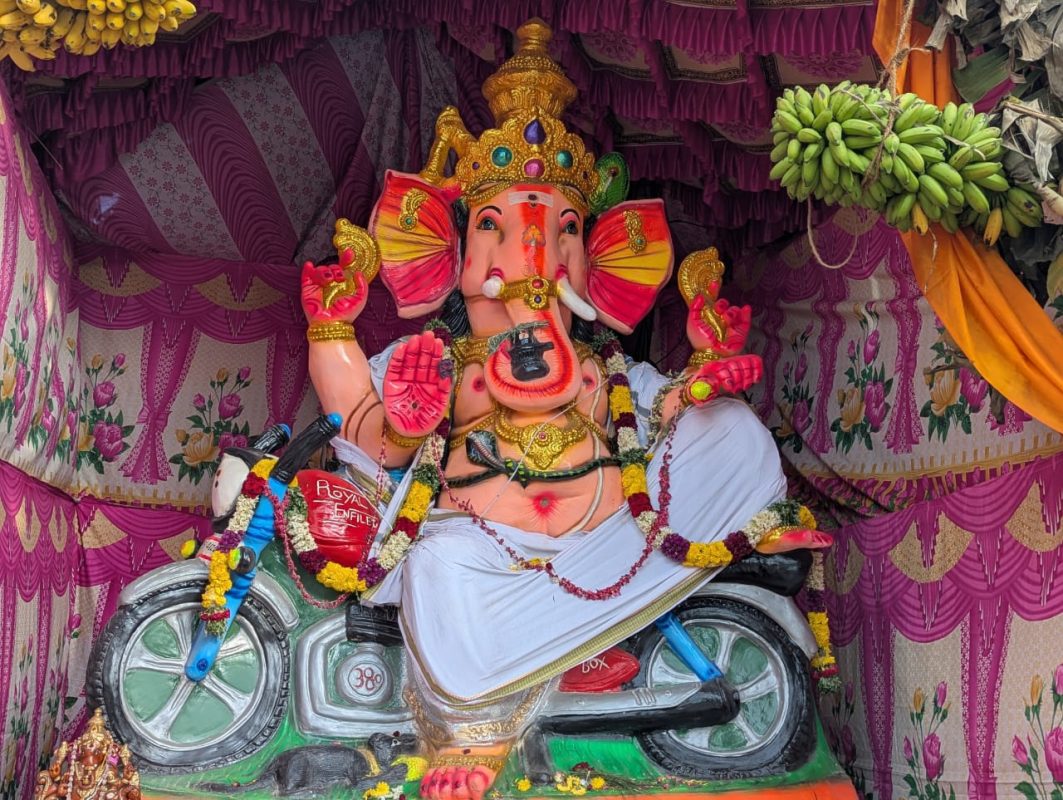
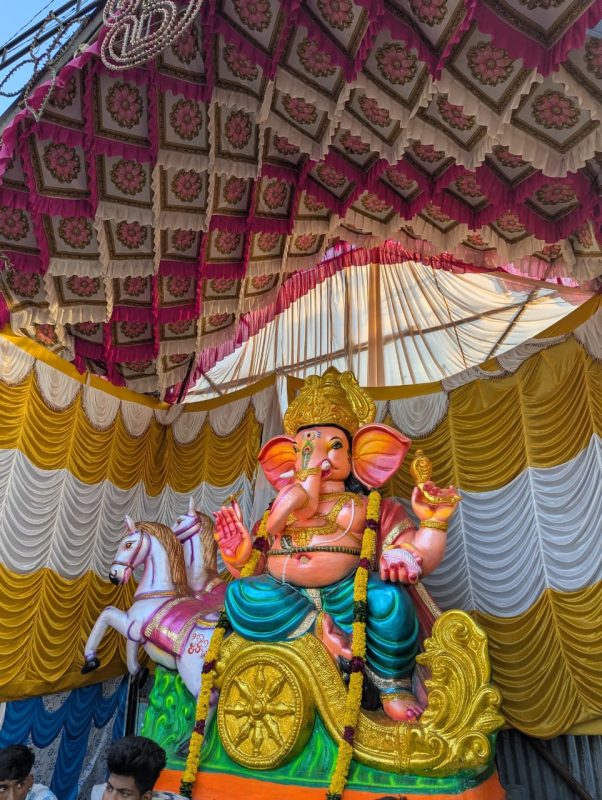
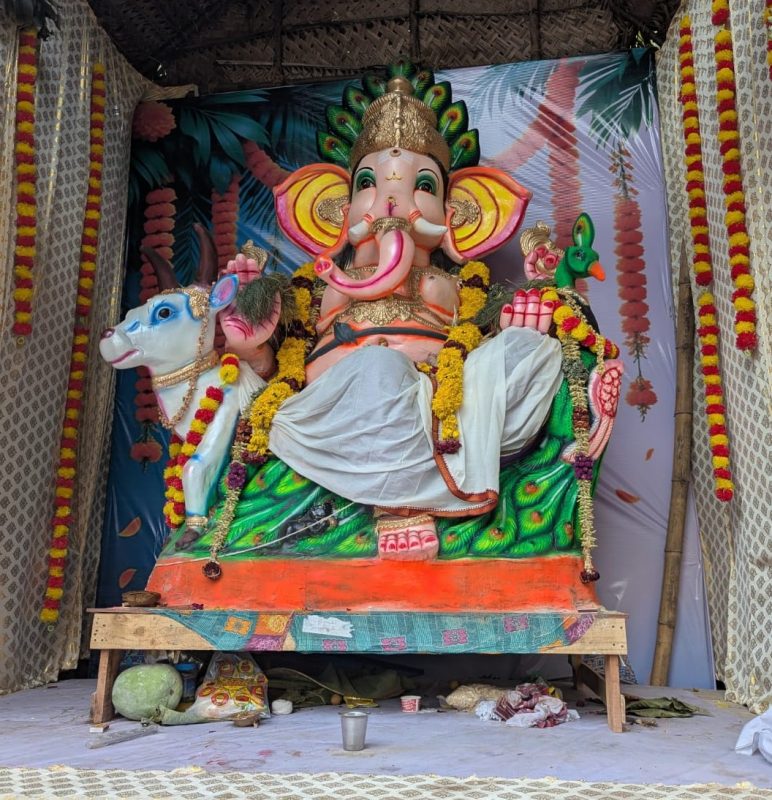
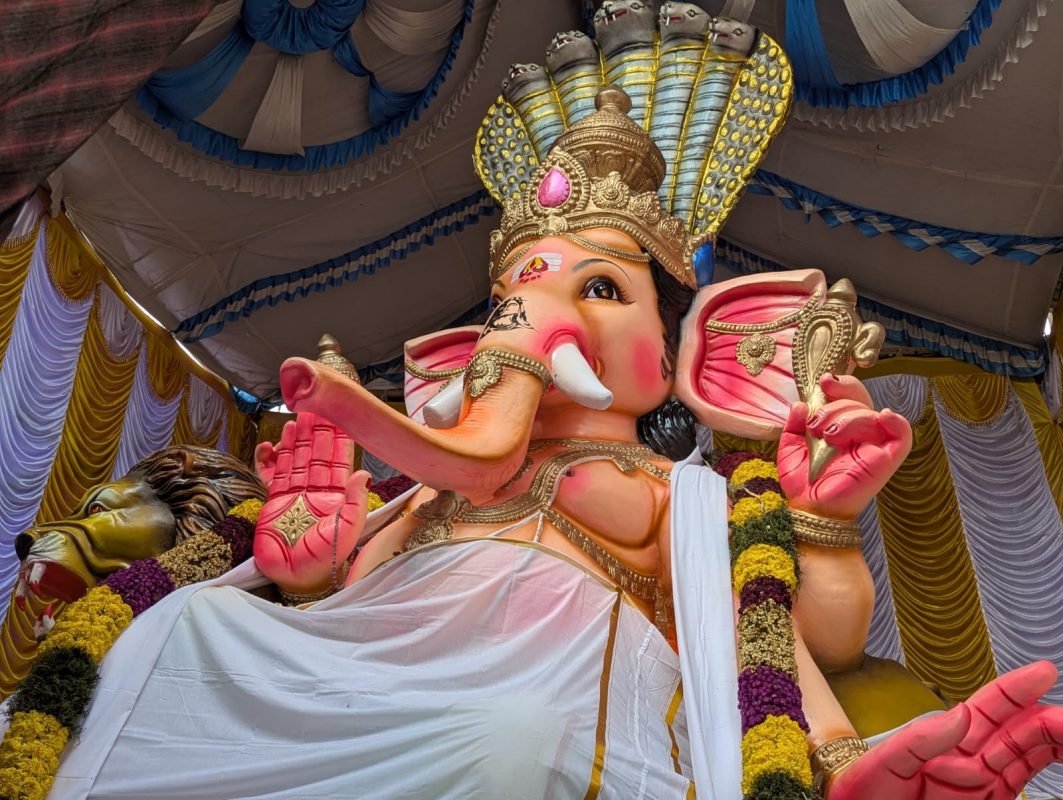
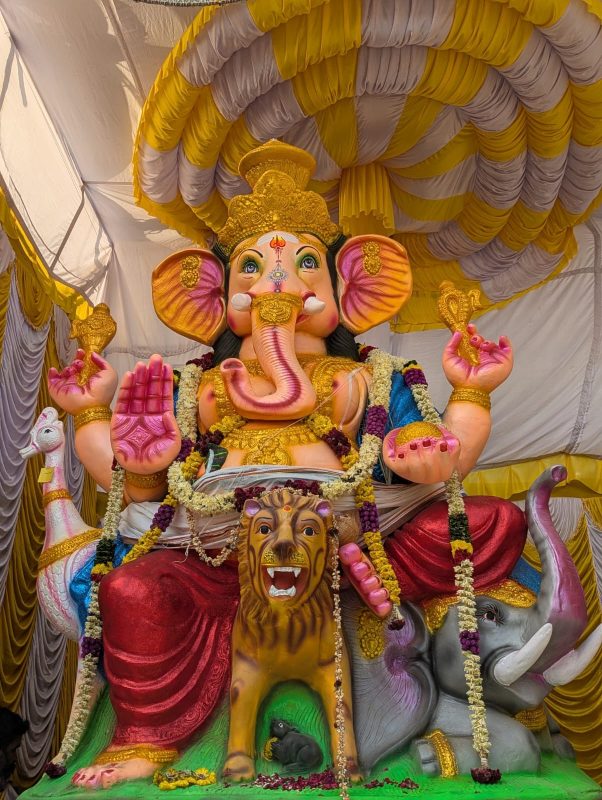
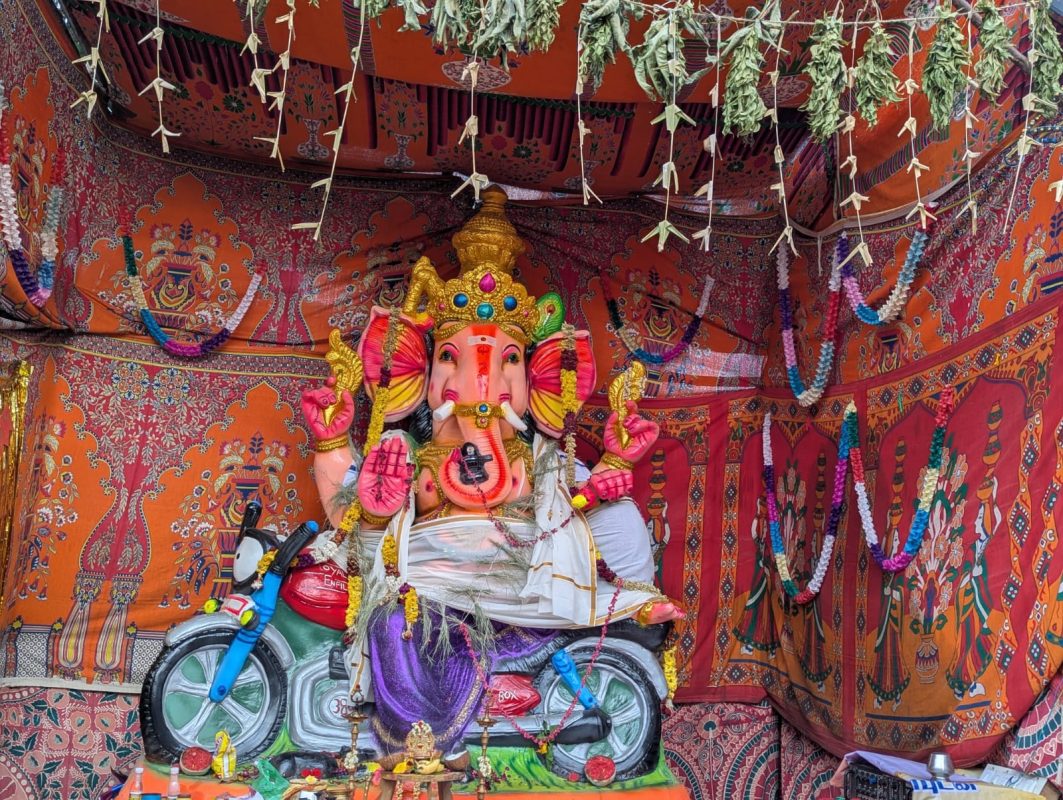
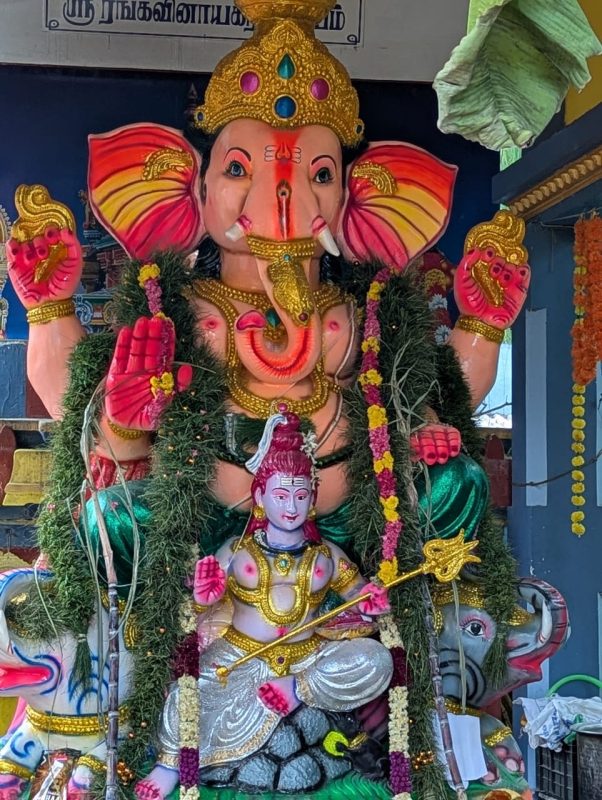
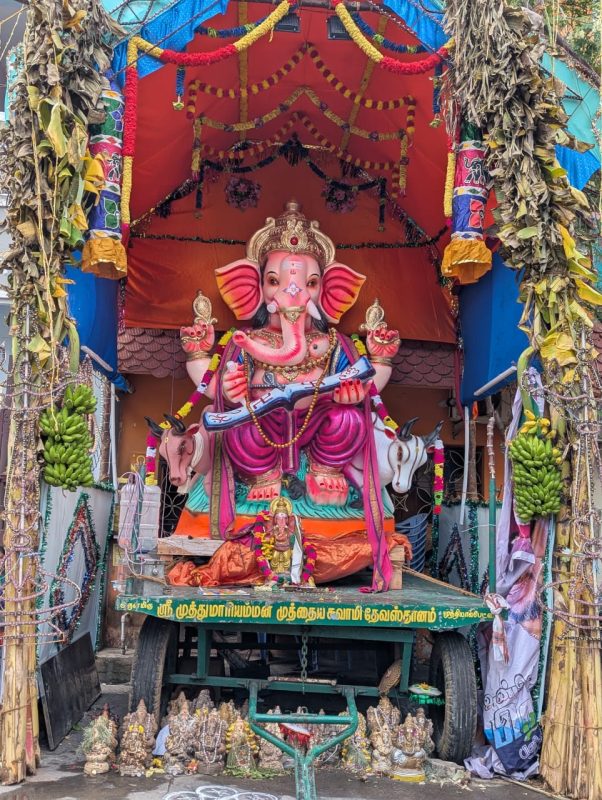

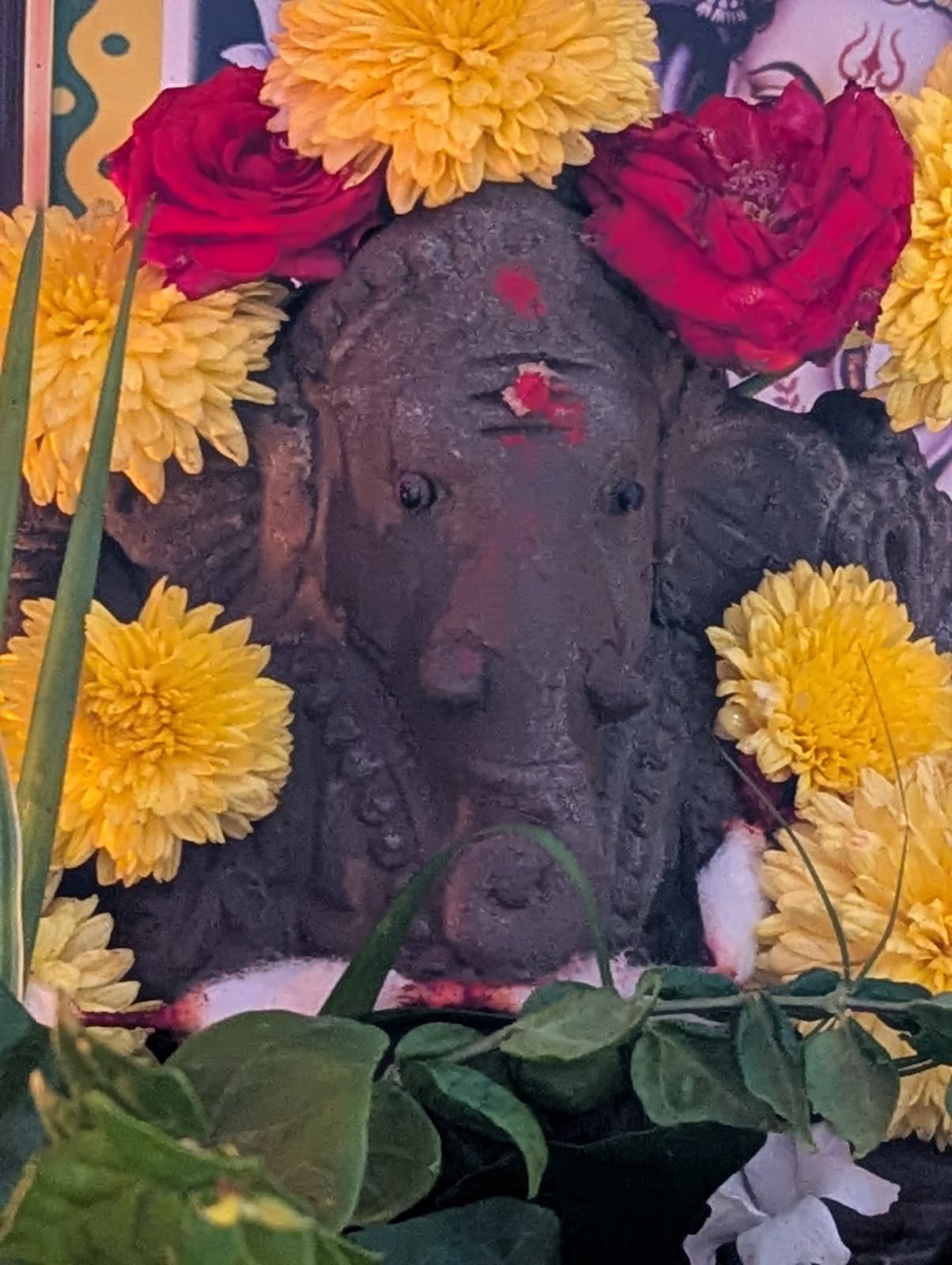
Horlicks, heart and helping hands – Lord Ganesha’s leela.
Nostalgic recollection at it’s best.
Thanks ever so much. Loved writing it.